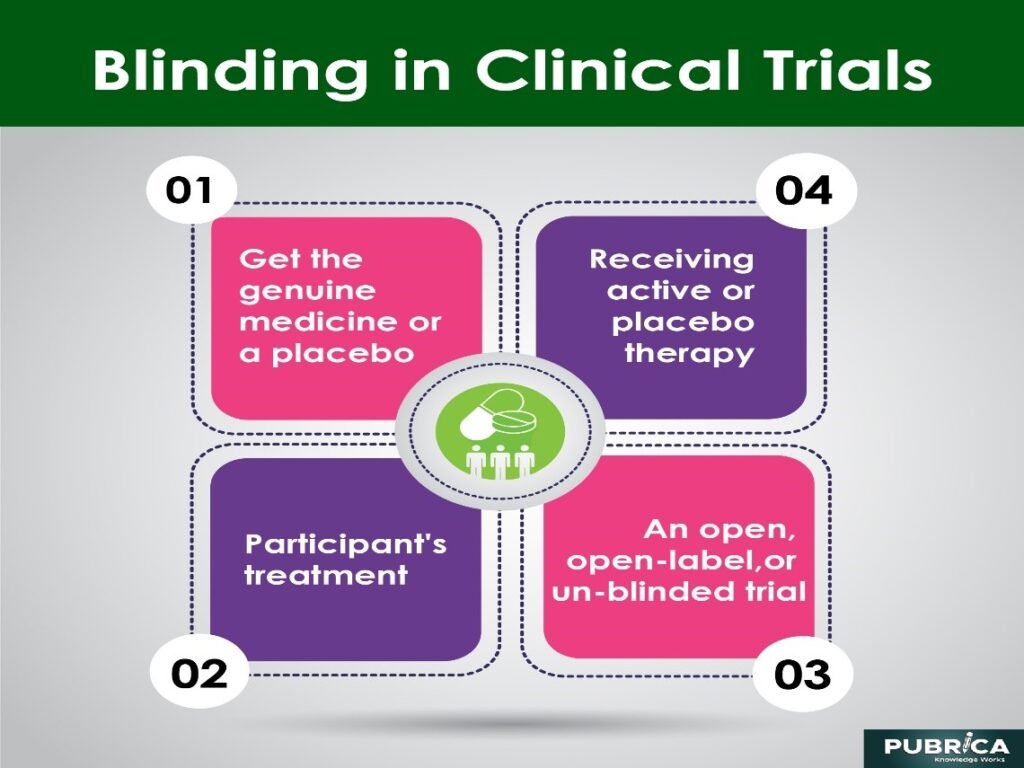What is blinding in clinical trials?
A blindfolded (or masked) clinical trial is a drug field experiment in which the subject is unaware whether they are receiving the real medication or a placebo. In a double-blind clinical study, neither the patient nor the researchers know whether the patient is receiving the right medication.
Blinding is used in clinical trials to remove any bias that could be unintentionally or purposely introduced if participants or the research team know whether they are getting active or placebo therapy. In a blinded trial, participants would not be aware whether they received the drug being tested or a placebo. An open, open-label, or un-blinded study, in which all parties are aware of the participant’s treatment, is the opposite of a blind trial.

Every participant in a clinical trial has the potential to introduce bias; thus, all participants can be blindfolded to ensure trial objectivity, including:
- The individual being treated;
- The medical staff doing the therapy;
- The physician assessing the treatment;
- The group was tasked with analyzing the results.
The different types of study blinding include:
- Single-blind or single-masked studies keep the treatment group a secret from the participants while revealing it to the research team.
- Studies that are double-blind or double-masked, in which neither the study staff nor the subjects know the participants’ assigned treatment groups.
- The data analysts are also blinded in trials that are triple-blind or triple-masked. As a result, the participant’s treatment is unknown to the doctor, data collectors, and outcome adjudicators/ analysts.
Author’s Update: Keep up to date on industry advancements, support, and training.
Pubrica Connect: Read articles about research, technology, and health communities daily.
Researcher Academy:Improve your manuscript by learning academic writing skills.
Language editing by Pubrica Author Services:Before submitting your work, double-check that it is written in proper English.
Translation by Pubrica Author Services: Translate your work into English professionally.
Search engine optimization (SEO): Make your article more visible by using SEO.
Your paper, your way: Save time by making your first submission simple.
